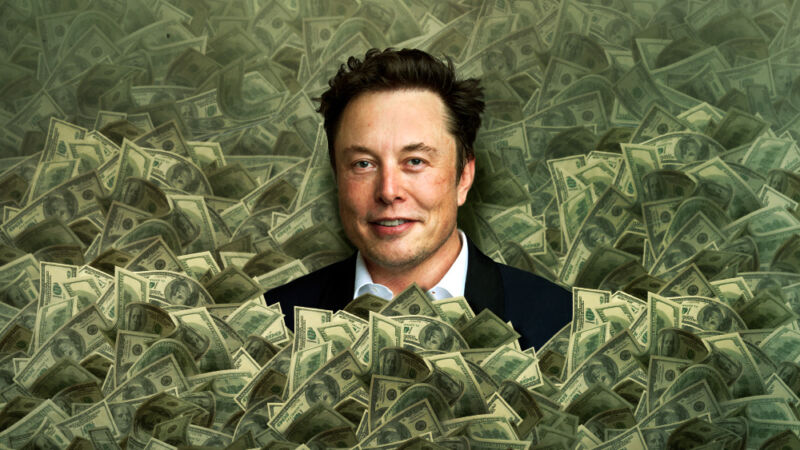by DEAN BAKER

A Delaware state court judge ruled that the $56 billion pay package awarded to Elon Musk by Tesla’s board of directors in 2018 was illegal. The gist of the ruling was that the board was composed of people who were close friends or relatives of Musk. The judge ruled that they gave him an outlandish compensation package, based on targets that they knew would be easily reached. She therefore threw out the contract.
To get an idea of the size of the pay package, Elon Musk’s compensation came to 89 percent of Tesla’s gross (pre-tax) profits over the years 2019-2023. It seems unlikely that that the company could not have attracted a competent CEO who would have agreed to work for a sum substantially less than 90 percent of the company’s profits. It is also seems likely that if an independent board had offered Musk a contract for 1-2 percent of the current contract ($560 million to $1,120 million) that he would have taken it, since it is unlikely that he had better paying options.
It is worth noting that the contract was not thrown out for moral reasons – the judge did not indicate that she felt Musk was making too much money in a general philosophical sense. It was thrown out because the judge determined that a board closely controlled by the CEO was ripping off shareholders with his generous compensation package.
Although most boards are not as tightly controlled by a CEO as Tesla’s, boards generally view their allegiances as being first and foremost to top management and not to shareholders. This is a main cause of outlandish CEO pay.
Last fall, when the UAW negotiated new contracts with the Big Three, it was striking how out of line CEO pay at the U.S. companies was compared with their counterparts in other wealthy countries. The pay of the top execs at Stellantis, Ford, and GM was $21 million, $25 million, and $29 million, respectively. By contrast, at BMW, Mercedes, and Porsche, it was $5.6 million, $7.5 million, and $7.9 million. At the large Japanese manufacturers, it was $2.3 million at Honda, $4.5 million at Nissan, and $6.7 million at Toyota.
It would be difficult to claim that the fact that, GM’s CEO got more than five times the pay of BMW’s CEO, and more than ten times the pay of Honda’s CEO, is explained by superior performance. Clearly the issue is different rules and norms of corporate governance that restrain CEO pay in other countries more than in the United States.
If we looked to change the rules of corporate governance, to give more control to shareholders, it is likely that we can bring pay of CEOs here more in line with their pay elsewhere in the world. This is a big deal, not just because a small number of CEOs get outlandish pay, but because the pay of CEOs distorts the pay structure at the top more generally.
If CEOs got $3 million or $4 million, rather than $20 million or $30 million, the CFO and other top execs would see corresponding cuts in pay, as would third tier executives. This would also spill over into the non-corporate sector. Currently, university presidents or heads of major foundations and charities often get paid $2 million or $3 million a year. When a senior person in the corporate takes a top-level government position at $200,000 a year, that is considered a major sacrifice.
CEPR for more
